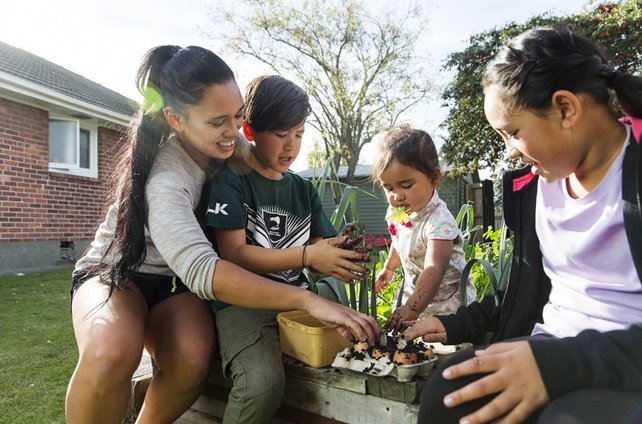Mental wellbeing is all about feeling good and functioning well. Mental health is something we all have, and just like our physical health, our mental health is something we can look after and strengthen.

Mental wellbeing is all about feeling good and functioning well. Mental health is something we all have, and just like our physical health, our mental health is something we can look after and strengthen.

Disasters and traumatic events can place added strain on our wellbeing - both with the stress of the initial event and the secondary stressors that follow, e.g. insurance issues and damaged infrastructure.
In the early stages following a disaster (i.e. the first 6-12 months), it can be tempting to want to give people practical things to do — things that in normal everyday life, might indeed be helpful. But if people are struggling, they may not have the reserves to cope with anything that feels overly demanding. Timing is everything!
Initial communication by the All Right? campaign focused on acknowledging and validating people's experiences and emotions. Similarly, ‘Aroha from Cantabrians’ asked people to share their own experiences with those living in Kaikōura and Hurunui after their earthquakes.
Disasters can leave people feeling helpless and disempowered. We might not be able to control the environment or things that are ‘out of our hands’ but it can be helpful to focus on the things that we can control.
When you’re confident the time is right, a positive step can be simply reminding people to keep doing the little things that make them feel good. While this may seem a bit ‘basic’ or easy, when it comes to wellbeing, the old saying is true — the little things often make the biggest difference.
All Right? produced ‘Practical Tips for Coping with a Disaster’following the Kaikōura Earthquake series in 2016 which shared some simple tips to help remind people of the things they can control and prioritise.
This paper aims to develop confidence in organisations and workers that their communication of the messages is supported by best practice, built upon good understanding of the evidence and reflects a consistent national approach
Five Ways to Wellbeing can act as a useful guide for thinking about and planning events and programmes aimed at helping communities activate and engage in improving their wellbeing.
Some examples from the All Right? campaign include translating Five Ways to Wellbeing into eight different languages, and the All Right? Amble, part of the walking festival where activity stations are centered on Five Ways to Wellbeing.
Five Ways to Wellbeing at Work Toolkit (developed by the Mental Health Foundation and Health Promotion Agency) is full of practical resources to support New Zealand workplaces, communities, and people to flourish.
All Right? developed 'Practical Tips for Coping with a Disaster', following the Kaikōura earthquakes. It has since been developed into a postcard, which has been shared following other natural disasters such as the Port Hills Fires, and the 2019 fires in Nelson Tasman region.